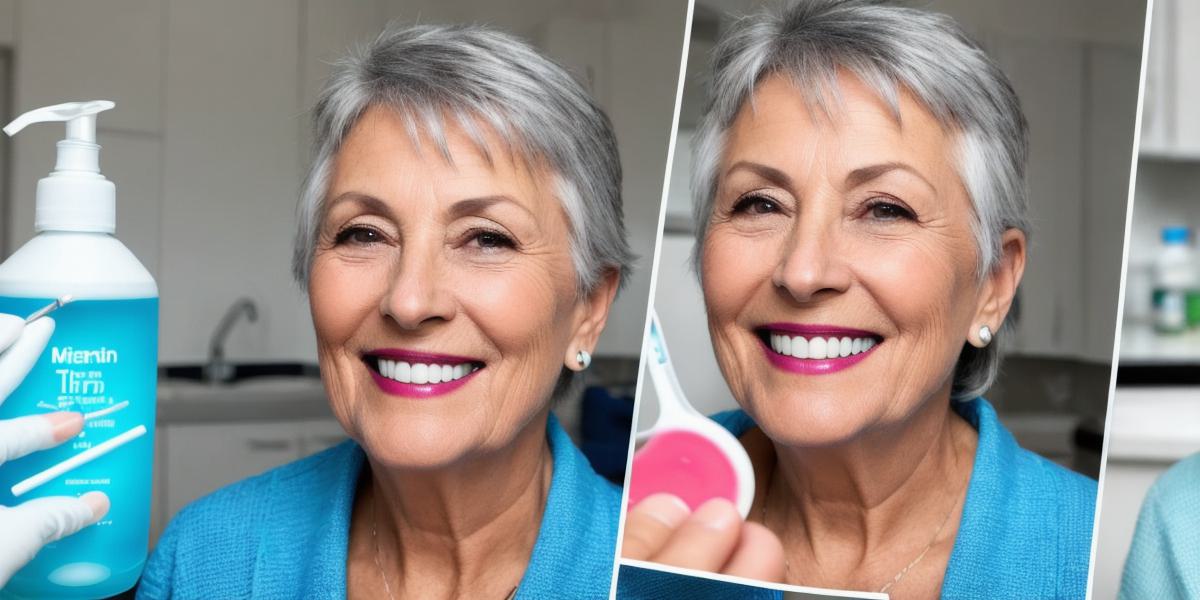Bad breath is a common problem for denture wearers, and it can be embarrassing and uncomfortable. However, there are several steps you can take to prevent bad breath and keep your dentures smelling fresh and clean all day long. In this article, we will explore the causes of bad breath in denture wearers, and provide practical tips and advice on how to prevent it.
Causes of Bad Breath in Denture Wearers
Dentures are a popular choice for people who have lost their teeth due to injury, illness, or age-related decay. They are designed to mimic the appearance and function of natural teeth, and they can help you regain confidence and independence. However, dentures can also be a breeding ground for bacteria and other microorganisms that cause bad breath.
There are several reasons why denture wearers may experience bad breath:
- Poor cleaning and maintenance of dentures: Dentures need to be cleaned and maintained regularly to prevent the buildup of bacteria and other debris that can cause bad breath. Failing to clean your dentures properly can lead to a foul odor and a sticky, unsightly appearance.
- Gum disease: Gum disease is a common problem among denture wearers, and it can cause bad breath due to the buildup of bacteria on the gums. If left untreated, gum disease can lead to more serious health problems, such as heart disease and stroke.
- Dry mouth: Dentures can cause dry mouth, which is a common cause of bad breath. Saliva helps to cleanse the teeth and gums, and without enough saliva, bacteria can build up and cause foul odors.
- Eating certain foods: Some foods and drinks can trigger bad breath in denture wearers, such as onions, garlic, and coffee. These foods contain sulfur compounds that can cause a pungent smell when they come into contact with the bacteria in your mouth.
Preventing Bad Breath in Denture Wearers
Now that we have identified some of the causes of bad breath in denture wearers, let’s look at some practical tips and advice on how to prevent it:
- Clean your dentures regularly: The most important thing you can do to prevent bad breath is to clean your dentures regularly. Use a soft-bristled toothbrush and mild toothpaste to remove any food debris and bacteria that may be clinging to your dentures. Rinse your dentures thoroughly with water after cleaning them, and store them in a dry, cool place at night.
- Brush your teeth and gums: Even if you wear dentures, it’s important to brush your teeth and gums regularly. This will help to remove any bacteria that may be lurking on the surface of your teeth and gums, and it will also help to prevent gum disease.

- Use mouthwash: Mouthwash can help to kill bacteria and freshen your breath. However, it’s important to choose a mouthwash that is suitable for denture wearers, as some products can cause staining or damage to the teeth and gums.
- Stay hydrated: Dry mouth is a common cause of bad breath in denture wearers, so it’s important to stay hydrated by drinking plenty of water throughout the day. You can also chew sugar-free gum to stimulate saliva production.
- Avoid certain foods and drinks: Some foods and drinks can trigger bad breath in denture wearers, so it’s best to avoid them if possible. Onions, garlic, coffee, and alcohol are all known to cause foul odors, so it’s best to limit your intake of these items.
FAQs
- Can I use regular toothpaste to clean my dentures?
Yes, you can use regular toothpaste to clean your dentures, but make sure to choose a soft-bristled toothbrush and use mild toothpaste to avoid damage to the teeth and gums.
- What if I still have bad breath after cleaning my dentures?
If you still have bad breath after cleaning your dentures, it’s possible that there is an underlying problem, such as gum disease or dry mouth. It’s best to see a dental professional for a proper diagnosis and treatment.
- Can I chew gum with my dentures in?
Yes, you can chew sugar-free gum with your dentures in to stimulate saliva production and prevent bad breath. However, make sure to avoid hard or sticky gums that could damage your dentures.
- How often should I clean my dentures?
You should clean your dentures at least once a day, or more frequently if you eat foods that are known to cause bad breath.



